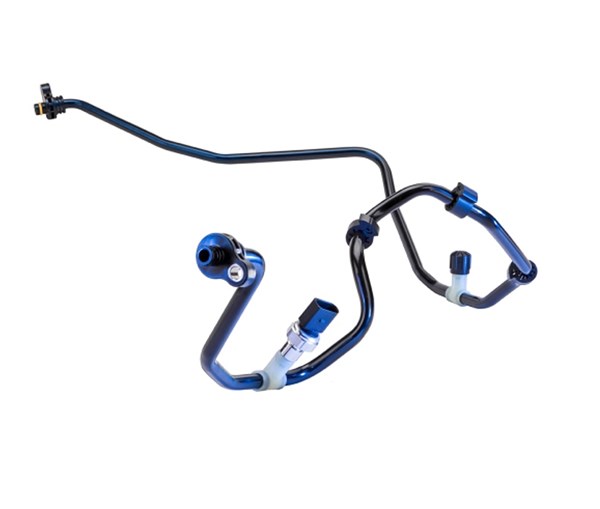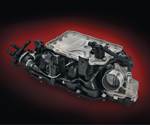High-Perfomance Nylon Beats Aluminum, Rubber in Auto Air Conditioning Lines
Eaton Polymers new PACCS lines bring a new standard to the industry.
As our June cover story indicates, new materials for automotive continue to emerge for more and more areas of the vehicle. A broad range of nylons is among them, including high-performance versions such as amorphous-based and long-chain nylons. The latter include most notably nylon 610, 612, and 510. Which brings me to a first-time automotive application that utilizes a blended long-chain nylon that was recently unveiled by power-management company Eaton.
The new Polymer Air-Conditioning Conveyance System (PACCS) lines are said to be a cost-effective and lightweight alternative to the aluminum tubing and rubber components used in traditional lines. Made of a blended long-chain nylon, the PACCS design reportedly results in a 20-50% weight reduction compared to the traditional lines. The PACCS lines are characterized as more bendable and flexible for greater packaging efficiency and safety benefits in crash conditions, capable of withstanding high-system pressure, and offer chemical resistance to all oils and refrigerants.
Still other advantages claimed include the capability to replace formed and bulk hoses, with up to 40% less components—resulting in a 10-15% cost reduction, and a lower assembly cost due to Eaton’s “Snap-to-Connect” system that eliminates the process of screwing traditional lines into the system. Gas tightness is said to be 10 times better than traditional lines, leading to a reduction in the amount of refrigerant needed. For example, a vehicle that normally would need 24 ounces of refrigerant would need only 21.36 ounces.
Moreover, PACCS lines are less susceptible to heat transfer, so heat from the engine does not result in diminished cooling, and 90% of the PACCS line’s thermoplastic materials are regrindable, for a better “end-of-life” profile, along with a 50% reduction in carbon-dioxide emissions.
PACCS capability covers a broad range of applications, including passenger vehicles, light commercial vehicles, medium- and heavy-duty trucks, buses, harvesters and agricultural tractors. Says Christophe Schorsch, manager, advanced products engineering, “This project in highly innovative and demanding from a product design point of view. It requires specific technical attributes like high thermal, mechanical and chemical performance, and is expected to start a revolution in the traditional connecting line industry by suppliers and customers. Today we are replacing traditional technology and building a new standard in the industry.”
Meanwhile, PACCS lines have been trial tested in a vehicle that had all its air conditioning lines replaced with the new material, and thousands of test miles have been accumulated confirming the advantages claimed over traditional lines. They are also being tested by several customers.
Eaton has a long history of producing air conditioning lines and components, including high-quality, corrosion-resistant lines for discharge, liquid and suction, internal heat exchange lines, as well as plastic quick connectors and recently introduced ultra-low-permeation hoses that contribute to reduced fuel consumption and help curb refrigeration losses.

Related Content
-
New Technology Bonds Aluminum With Polyamides
With many benefits for numerous potential applications, including in the burgeoning electric vehicle market, Celanese’s Zytel Bonding Technology achieves stronger bonds than overmolding or welding.
-
ABC Technologies to Acquire Windsor Mold Group Technologies
The Tier One automotive supplier with compounding and blowmolding machine capabilities adds the 50-yr-old molder and moldmaker.
-
K 2022 Preview: Engineering Materials for Sustainability and E-Mobility
Materials that are sustainable yet offer equal performance to their fossil-based counterparts will be prominent at K 2022.
















